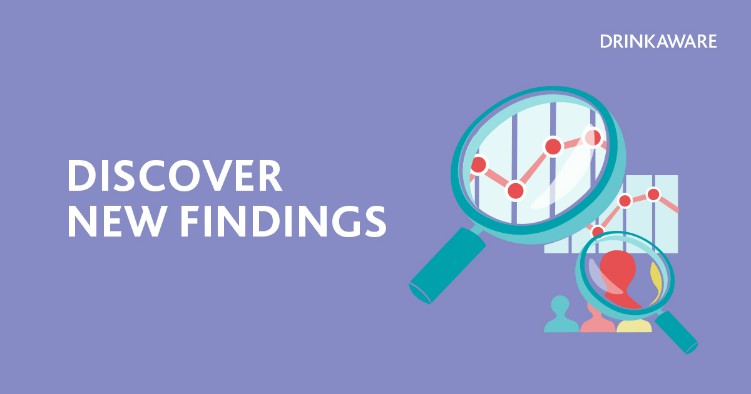Alcohol is associated with an estimated 2.8 million deaths worldwide every year and ranked as the seventh leading risk factor for premature death and disability in 2016, according to a major new study published in The Lancet. The study showed that an average of one in three people, the equivalent of roughly 2.4 billion people, drink alcohol, including 25% of women and 39% of men.
The Global Burden of Disease Study found that alcohol was a leading cause of death for people aged between 15-49 years across the world. For this age group, alcohol was associated with tuberculosis, road injuries and self-harm which cancer was found to be a leading cause of alcohol-related deaths for people aged 50 years and over.
The findings also revealed that, for one year, in people aged 15-95 years, drinking one alcoholic drink a day increased the risk of developing one of the 23 alcohol-related health problems by 0.5% compared with not drinking at all. At 3.1 alcohol drinks, women in Ireland were ranked as the seventh highest consumers of “average daily drinks”.
The authors of the study concluded that there is no safe level of alcohol consumption. Previous research have suggested that low levels of alcohol consumption can have a protective effect against heart disease or diabetes however, the lead author of the Global Burden of Disease Study Dr Max Griswold stated, “the strong association between alcohol consumption and the risk of cancer, injuries, and infectious diseases, offset the protective effects for ischaemic heart disease in women in our study.”
“Previous studies have found a protective effect of alcohol on some conditions, but we found that the combined health risks associated with alcohol increase with any amount of alcohol. Although the health risks associated with alcohol starts off being small with one drink a day, they then rise rapidly as people drink more,” says Dr Griswold of the Institute for Health Metrics and Evaluation, University of Washington, USA.
“Although the health risks associated with alcohol start off being small with one drink a day, they then rise rapidly as people drink more. Policies focusing on reducing alcohol consumption to the lowest levels will be important to improve health. The widely held view of the health benefits of alcohol needs revising, particularly as improved methods and analyses continue to shed light on how much alcohol contributes to global death and disability.”
The study used data from 694 studies to estimate the rate of drinking alcohol across the world and 592 studies including 28 million people worldwide, to study the health risks associated with alcohol between 1990 to 2016 in 195 countries. In the study, a standard drink was defined as containing 10 grams of pure alcohol.
REDUCE YOUR RISK
If you choose to drink alcohol, reduce risks to your health by adhering to the HSE low-risk guidelines for alcohol consumption. Think about how much you drink on average and find out if this is within the guidelines. Our research showed that less than 3% of Irish adults can correctly identify the guidelines but they are important to know and can help you to see how much you are really drinking over the week. Remember, these are guidelines – not a target.
- Women: Less than 11 standard drinks (110g pure alcohol) spread out over the week, with at least two alcohol-free days
- Less than 17 standard drinks (170g pure alcohol) spread out over the week, with at least two alcohol-free days
Common examples of one standard drink are a half pint of lager/stout/cider, a 100ml glass of wine or pub measure (35.5ml) of spirits. On average, it takes one hour for the body to process one standard drink and there’s no quick fix – only time.
Try our drinks calculator to see if you are drinking within the guidelines
MAKE SMALL CHANGES TO DRINK LESS
Here are some small steps you could take to drink less alcohol. Remember, everyone’s motivation for drinking less is different so it’s important to choose small steps that work for you.
- Stay out of rounds – you may end up drinking far more than you intended as you are more likely to drink at the pace of the fastest person in the group.
- Set yourself a limit on a night out. If you usually go for an after-work drink on a Friday, why not set a limit on the number of drinks you will have in advance? Keeping this number in mind will help you to keep track and stick to it.
- Alternate each drink with a glass of water to reduce the dehydration associated with alcohol. Keep a jug of water on the table to make this easier.
- Always use a standard drink measure: never free-pour spirits or wine. Order one for free
- Never top up your wine glass – always finish one glass before refilling. Topping up your glass makes it harder to track how much you’re drinking.
- Take advantage of the increasingly available lower or no-alcohol beer or wine and swap out your usual drink.
- Break your habits at home. This can seem like a nice way to unwind after a long day but it can often result in drinking more than usual. If your normal night in includes a drink in front of the TV, consider doing something different like going for a walk or try not to keep alcohol in the house.
- If you would like to stop drinking completely, we have some advice to help.


